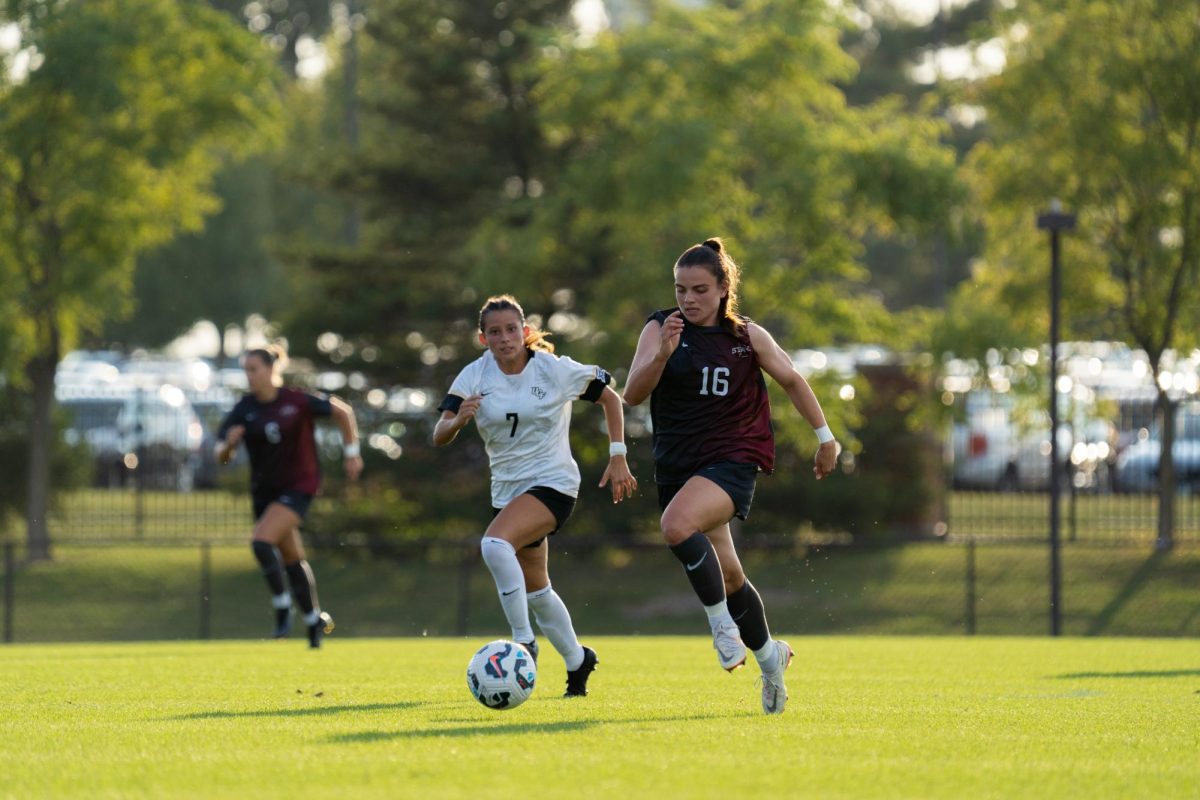Healthy eating, exercise can combat ‘freshman 15’
September 3, 1999
Every fall, incoming college students are warned about the “freshman 15.”
Eating habits and lack of exercise usually shoulder the blame for college weight gain, but local experts say the “freshman 15” is a part of life.
“Plan ahead, buy fresh fruits and vegetables, carry water with you to class and have your mind set to do something about it,” advised Rebecca Lang, temporary instructor of health and human performance.
“Lifestyles change, and oftentimes athletes in high school are not as active in college because they do not have a structured routine,” she said.
Brooks Morse, staff psychologist for eating disorders at Student Counseling Services, said one cause of unhealthy living is the American culture’s social events often revolve around food.
As they become more socially active in college, students have a less-structured environment around food.
People often crave the foods they identified as “bad” in the past, Morse said.
Lang said another problem is college students’ tendency to eat quickly.
“Food choices, then, are not as healthy,” she said.
Staying healthy throughout the year can be difficult unless students develop strategies, Lang said, and eating a healthy breakfast is a start.
“It doesn’t have to be a large meal,” she said. “Your body needs something to keep it awake and going. An apple, banana or bowl of cereal with milk would be sufficient.”
Lang also advised staying clear of sugar and caffeine.
“When we are stressed, we have a habit to reach for foods loaded with sugar or caffeine,” Lang said. “Caffeine causes a vicious cycle of an up- and-down reaction. In the long run, it drags down the body, resulting in less energy.”
Besides dietary changes, Lang also recommended exercise as an effective way to keep the pounds off.
“Remember to be active in daily schedules,” she said. “Walking to class instead of taking the bus is one example. It’s a mindset of getting out there [to exercise], and fresh air is exactly what we need.”
But weight gain is not always caused by eating more or exercising less, Lang said.
Growing taller and gaining muscle mass can affect a college student’s weight as well.
“Women are targeted more. They assume that because they hit puberty earlier they stop growing earlier,” Morse said. “But in reality, women aren’t finished growing until about 21 years. Weight gain is normal during the first year of college.”
Some students believe weight gain is a bad thing, and they need to start dieting, Morse said.
“That kind of thinking can be the beginning of an eating disorder,” she said.
Dieting actually causes weight gain in most cases, she said. It slows down the metabolism, so when students do eat, the calories aren’t burned up.
Morse said research studies show that 95 to 99 percent of people gain back the weight and more within five years of weight-loss dieting.
“Freshmen should fight it less and be more accepting of their bodies,” Morse said. “Healthy eating is following the food guide pyramid and including fruits and vegetables. It is not dieting or depriving oneself of certain foods and decreasing calories.”






